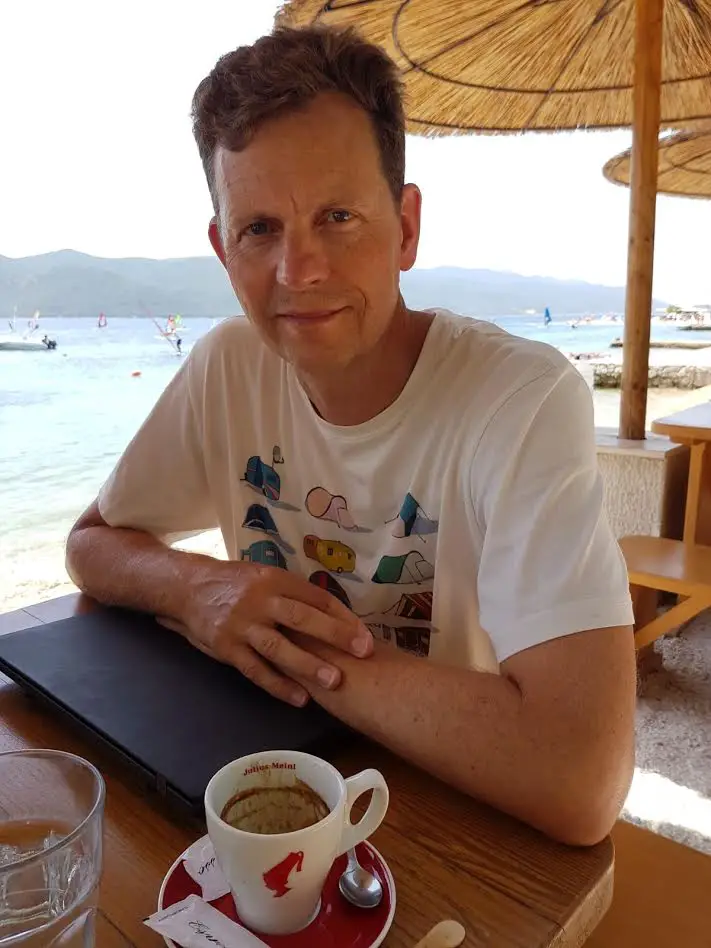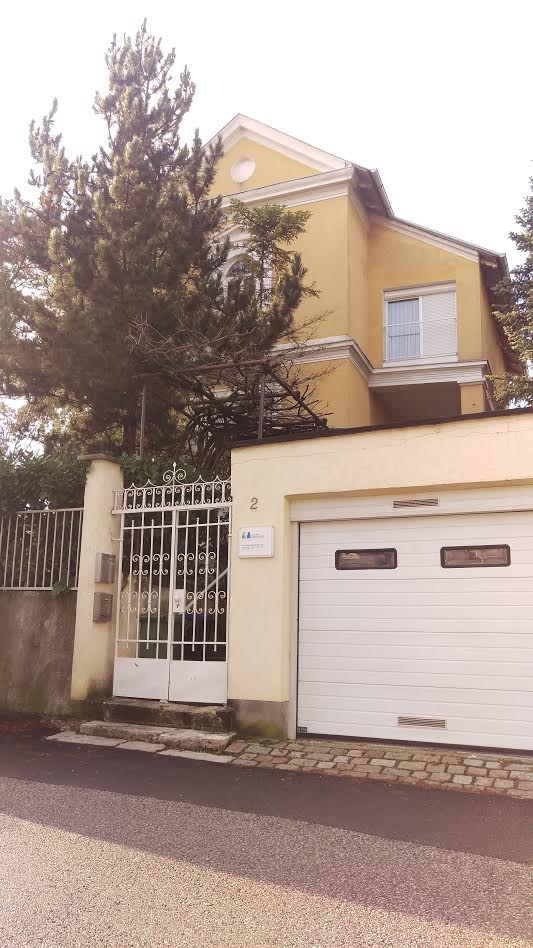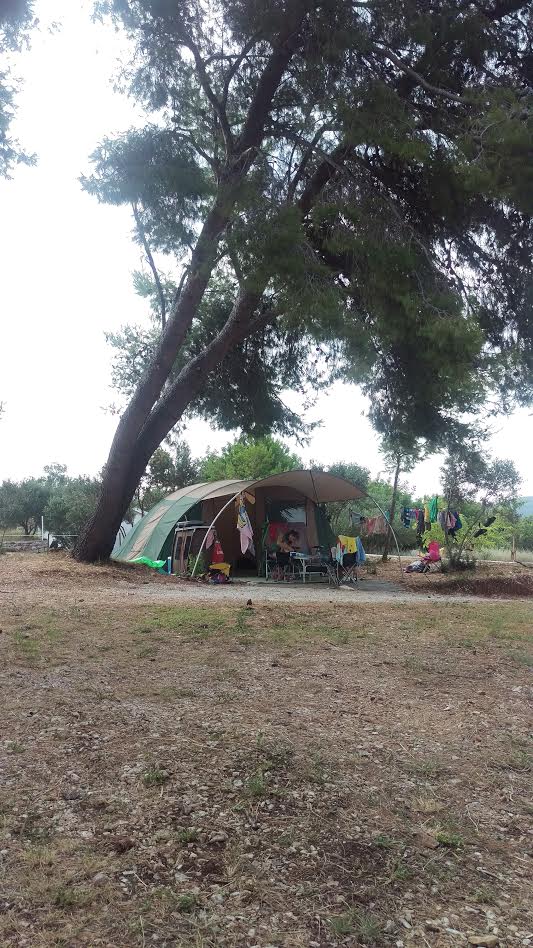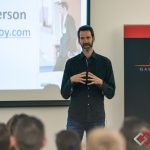He came for the beer from the Netherlands almost 20 years ago and is still here, running a successful consultancy. Continuing our look at the foreign entrepreneurs in Croatia on December 19, 2017, meet Robert Groeneweg from New Europe Resourcing.
1. First and foremost, why Croatia?
At the end of the nineties, my employer Heineken asked me to set up an office in Zagreb. Since I was always travelling and eager to discover other countries and the company entrusted me with such a great challenge I didn’t hesitate a minute and relocated to Zagreb with a suitcase and a few bottles of Heineken beer. We were, in the beginning, working with local distributors in all republics of former Yugoslavia and Albania but we kept our regional headquarters in Zagreb. A few years later we were acquiring breweries in Macedonia, Serbia and we also acquired Karlovacka Pivovara, where I worked for another 2,5 years. At the same time, I fell in love with my wife and instead of moving further as expatriates we decided to stay in Croatia. I really liked to live in Zagreb and enjoyed Croatia and the region. There is still a lot to discover in the region and Croatia has much to offer for an exciting family life. I actually never even thought of moving somewhere else. The quality of life and experiences here made us decide to give up my safe ‘expat’ contract and further develop in other businesses. Since then I have worked in a few other local and international companies which broadened my horizon and expanded my circle of friends and business relations.
INTRO YOUR BUSINESS, what is it you do?
After I graduated and started working I always had the thought to once start my own business and I finally realized it by founding my company: New Europe Resourcing. When the financial crisis started in 2009, I reported to my boss in London and due to the crisis, I observed in the UK some companies popping up with innovative business models in order to keep their business going under the new challenging circumstances. After combining some ideas and my own experience I made a decision to quit my job and start a consultancy company in Croatia. I believed that if I could launch a company in crisis and survive, I would find a long-term solution to stay with my growing family in Croatia. New Europe Resourcing provides Executive Search (headhunting of top managers) and Research according to an innovative, flexible and transparent business model. We are hired by companies that would like to employ a new board or management team member or another senior manager that will bring value to their business. Once we receive the briefing of the client, we perform an in-depth research followed by approaching potential candidates, assessing their competences and motivation and at the same time we are representing our clients through providing extensive information about their business and the vacant position to the candidates. During the process, we are assisting both: client and candidates, and we make sure the communication flow remains clear and confidential.

2. Tell us about some of the differences in your expectations of running a business in Croatia and the reality.
Once I started a business in Croatia I soon found out that I had to deal with some cultural differences. In Northern European countries people ‘don’t waste time’ in getting to know one another and usually, the business talk starts immediately after introduction. In Croatia, I suddenly was invited for ‘kava’s’ and ‘ručak’ while in my mother country I would have already concluded the business. I soon found out that this belongs to the business culture and despite slowing down the processes the results were actually improving when I adjusted and it was also more enjoyable to meet (potential) business partners in a more relaxed environment and eventually I discovered it is all about building trust and long-term relations. Another thing which I did not understand is that it didn’t make any difference buying 1 or 100 items in a retail store.
In The Netherlands, it is normal to negotiate in stores when you spend higher amounts but in Croatia, store managers are not empowered to make such decisions. Usually, they are afraid to contact their owner and show flexibility which might lead to making a good deal for both client and seller. Another aspect that I had to get used to was that there are (unfortunately many) people and companies in Croatia that just refuse to pay your invoice after you have delivered your product or service and if you get paid it is very rare to receive the payment within the agreed payment term. Knowing that the legal system in Croatia is not functioning well, as an entrepreneur you are actually on your own to try to collect outstanding payments and it is a given fact that in this respect you have to anticipate losses and make sure you work with trustworthy clients.
3. What (if any) bureaucratical issues have you encountered and how did you overcome them (i.e. any advice to the would-be entrepreneur?)
I believe it depends a lot on which kind of business you are operating. If you are in a business which competes with publicly owned companies or where you are dependent on licenses or permissions from the government you will encounter challenges. Opening a company in Croatia wasn’t too difficult and actually went quite fast. What I didn’t know is that in order to obtain a license for the work I am doing I needed to present a nostrification of my diploma and this was requiring a lot of documents to be translated to Croatian and it lasted a couple of months before I could move on.
4. How is your product or business perceived in the Croatian market?
When I started New Europe Resourcing, top management recruitment in companies was usually conducted internally. The practice was, and in most of the cases still is, that the General Manager is appointed via connections and that he/she is forming a team of people he/she knows from his/her network (private and business). The government is setting the questionable example by changing all management boards of public companies when the party that won the elections takes over the mandate. In other words, it is more important to be a member of a certain party than being selected on your competences. In my country, these things are separated and the board member of a publicly owned company will not be fired when the leading political party changes. When we started 8 years ago, we offered a business model which focuses entirely on performing and presenting a neutral assessment of competences of top managers for the clients who needed such services. Always when someone offers an innovative approach in a conservative industry there will be scepticism. I soon found out that my best chance of getting an assignment was to contact multinational companies that needed assistance in selecting top talent for their Croatian branches. We were in the beginning mainly competing with international executive search companies that had an office in Croatia or in the region and some local mass recruitment companies, but after we delivered some work for a few international companies, we gradually grew our client base and carefully built our reputation which is based on flexibility, transparency and confidentiality. This interview is actually the first we are giving since the start of our company because we prefer to operate in backstage. Currently, our client base has developed in many industries and I am really proud that we are also collaborating with local and regional companies who recognised that our way of search and selection brings them the desired human capital. From our office in Zagreb we are also increasingly working internationally, delivering our services in countries in the region and currently, we are exploring the opportunities of opening offices abroad. We are fully focused on positions in the countries where we are active and we are not working for foreign recruitment companies or ‘exporting’ Croatian employees.

5. What were the opinions of your friends and community, were they supportive of your idea, or…?
It happened often that Croatians asked me why I would not return to The Netherlands and why do I choose to stay in Croatia because according to them everything is easier and everybody is richer in my home country. I, however, don’t agree that starting a business as a foreigner is more challenging than when you are a Croatian citizen. I respect anybody that dares to start-up a company of their own and which passport you carry will not be the reason for success or failure. The most important thing is to offer something that consumers or customers value and want to buy, and when you find out what that is, to go for it, work hard and believe in it. I praise myself lucky that I have some very good friends and a great family (in Croatia and in the Netherlands) that believed in my business and from the beginning were supporting me and the same people are still giving me advice and trust to further develop it.
6. What are some of the greatest challenges you have faced in business in Croatia?
I would say there is never a dull moment doing business in Croatia. Any consultancy business is dependent on how the economy develops. I started my business when the financial crisis emerged and I expected economic growth to come earlier. Just when economic growth emerged last year and I thought: ‘now we are going to grow further’, the Agrokor crisis happened. Our company is categorised as a small medium enterprise (SME) and especially for this group of companies there is not much support in Croatia. During the last 8 years I have seen most support and publicity going to large privately-owned companies like Agrokor or fancy start-ups which are still making losses but the engine of every good functioning economy should be a healthy SME sector and for these companies, usually owned by hardworking and small but great entrepreneurs, there are constant challenges and limited support.

7. If you knew then, what you know now, would you have come?
My motivational drivers are freedom and family. That is one of the reasons I started my own company. I would like to have the freedom and independence to decide about my own life and I have a wife and 4 children with whom I would like to have as many nice moments as possible. I am working hard to develop my company but it’s for me equally important to be a father and a husband and to enjoy and explore life. Croatia is a beautiful country with great people and it has still a lot of opportunities to explore, which is something I want to be part of. I am pretty sure that I will stay around here.
8. What are 3 things you love about Croatia?
I really love to go with my family in our VW van and our tent to explore the country and the region. We are camping, swimming and windsurfing and it’s so great that all these beautiful places are close to where we live. My dear punica lives on a small farm in Zagorje and we also like to spend time there. The meals are prepared from the food that grows on the farm on a wood fire stove and my kids enjoy a great outdoors and nature. I also really like the relaxed way of meeting friends. In The Netherlands, there is a lot of pressure in planning and making sure everything fits in your agenda. Socialising in Croatia is more laid back and less organised. People here take more time for each other and when you have a problem they always try to help or connect you with people they know. I also believe that Zagreb and other cities are relatively very safe and I seldom see aggression on the street. I believe that my children grow up in a great environment.
9. What are 3 things you would like to see improved in the business climate in Croatia?
I would like to see more governmental support for small and medium privately-owned companies. In addition to that, it would be good to attract more foreign investments. I recently worked for a Swiss company that acquired a medium-sized company in Slavonia and they will with their investment develop a state-of-the-art production plant and the local company will grow in a few years their revenues ten-fold and hire twice as many employees. Most of the products will be sold abroad and exported. These are investments that immediately add value and provide jobs and I am sure there is still a lot of space for improvement to attract more of this. Furthermore, I would like to see a political will to decrease the influence of government in business, to develop a longer-term view on how to create jobs and improve the judicial system in order to protect entrepreneurs.
10. How is it working with Croatians in terms of a business mentality?
My personal experience regarding collaborating with Croatians in business is positive. When you know where to look you can find employees with the right mentality and highly skilled in what they are passionate about. I believe it’s a two-way street. If you are able to inspire and motivate your colleagues they will be happier to be part of your company or team and give more of themselves. One of the areas which still can be developed is to stimulate pro-activeness and taking ownership of the work. I observed the leadership in many companies in Croatia and unfortunately hierarchy and status are sometimes more important than developing young talents and stimulate them to continuously grow. I praise myself lucky that since I started my company I was accompanied by great colleagues that not only deliver their professional skills but also are enjoyable to spend the working day with.
11. Advice for foreign entrepreneurs thinking of coming to Croatia?
I believe when you can offer a product or service that Croatian people would like to pay for, you can be successful if you try to be the best in what you are doing. It’s essential to understand and respect the culture from the day that you arrive and take of your home-country hat. Complaining and whining will not take you far. Making friends and developing positive business relations certainly will help you to get positive word of mouth and help you to build your reputation and once you will be recommended, your products or services will come into demand.
Learn more about Robert’s services on the New Europe Resourcing website: www.neweuroperesourcing.com










